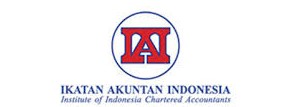Pengaruh Moral Etika Pajak Penghasilan Terhadap Tax Avoidance Dengan Sosio Demografi Sebagai Variabel Moderasi
(Studi Empiris pada Kantor Pelayanan Pajak Pratama Padang)
Abstract
Taxes are the main source of state income and reception, and are used to increase the prosperity and welfare of the people as a whole. The income tax collection system currently provides loopholes for taxpayers to prepare reports on tax payments to a minimum as long as they do not deviate from the applicable legislation.Important issues in taxation include awareness of paying taxes, tax paying behavior, obedience in paying taxes and tax avoidance. In connection with this research conducted aims to examine empirically about: (1) The moral-ethics effect of income tax on tax avoidance, and (2) Socio-demographic relations on the moral-ethical influence of income tax on tax avoidance. In connection with this research conducted aims to examine empirically about: (1) The moral-ethics effect of income tax on tax avoidance, and (2) Socio-demographic relations on the moral-ethical influence of income tax on tax avoidance. The data needed in this research is obtained from a questionnaire filled in by the income taxpayer sample registered at the KPPP Padang, which consists of 100 taxpayers. The collected data was analyzed using simple and multiple linear regression tests and the MRA (Moderating Regression Analysis) test for moderating variables. The research results obtained are (1) Moral-ethics of income tax affects the intention of personal taxpayers to carry out tax avoidance income tax. (2) Socio Demography does not moderate the relationship between moral-tax ethics and personal taxpayer intentions to carry out tax avoidance income taxes. (3) Moral-Ethics of Income Tax and Socio-Demographic influence together towards Tax Avoidance. In addition Socio Demography is proven only as an independent variable (predictor) in relation to Tax Avoidance.







.png)
.png)
